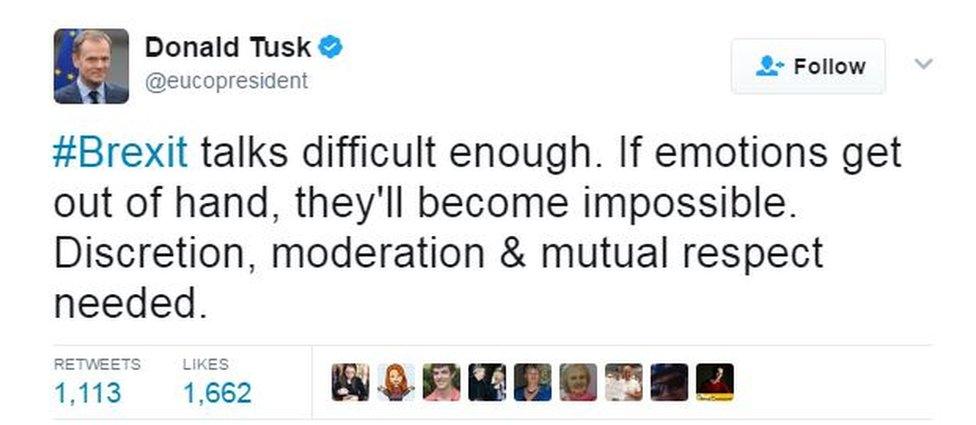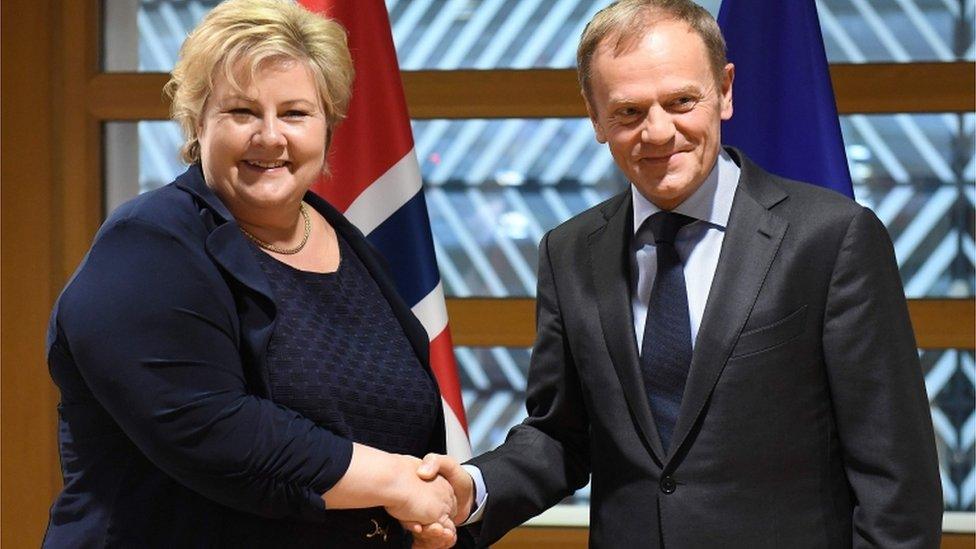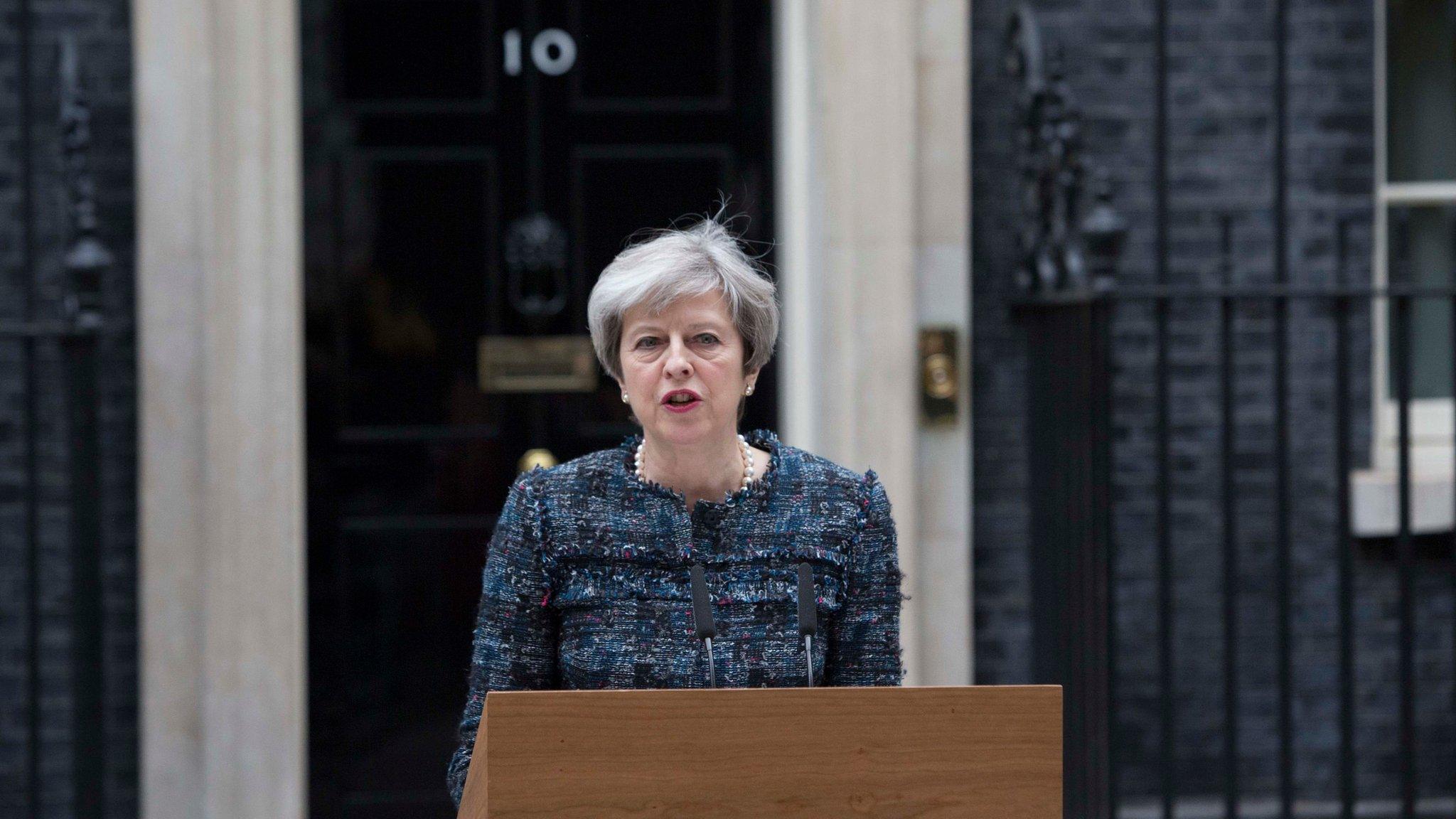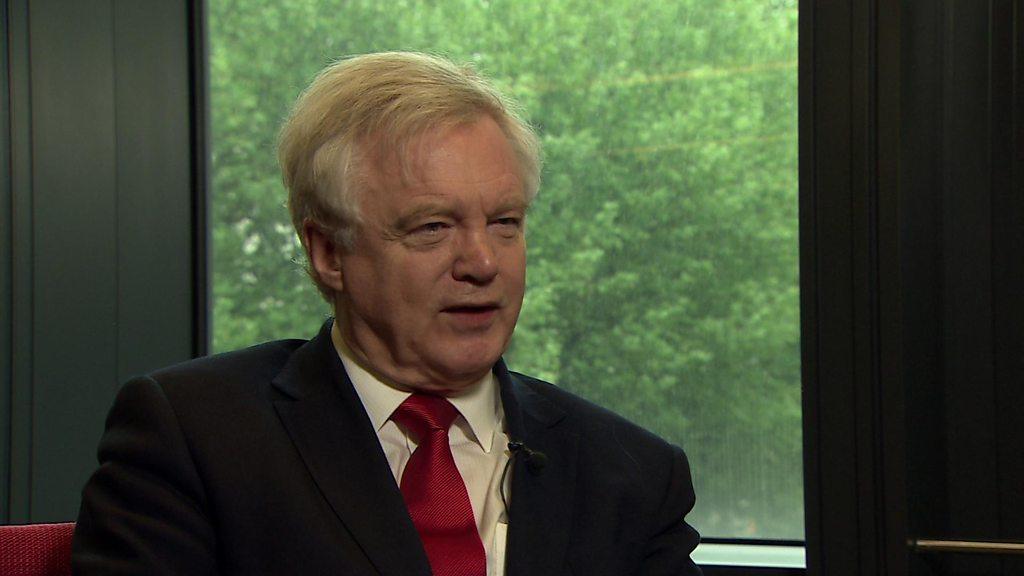David Davis: European Commission trying to bully UK
- Published
- comments
David Davis say it was a "deliberately misleading" European Commission briefing
David Davis has accused the European Commission of "trying to bully the British people" following negative stories about Brexit negotiations.
The Brexit secretary said a "line was crossed" when stories suggested the UK could face a 100bn euro "exit bill".
He said there had been a "deliberately misleading briefing" after a dinner with the PM and Jean-Claude Juncker.
European Council President Donald Tusk has urged "mutual respect" ahead of Brexit negotiations.
Mr Tusk's call for discretion was thought to be aimed at EC President Jean-Claude Juncker, who reportedly called Mrs May "delusional" following the Downing Street dinner to discuss Brexit.
Local elections 2017: Polling day
Mrs May's attack on the "bureaucrats of Brussels" was delivered from Downing Street on Wednesday afternoon after her meeting with the Queen.
Why the UK might have to pay to leave the EU
Mr Davis backed the prime minister during an appearance on BBC One's Question Time, criticising stories which appeared suggesting the UK could be hit with a bill twice as much as previously reported.
"Clearly what was happening was the commission was trying to bully the British people - and the British people will not be bullied, and the government will not allow them to be bullied," Mr Davis said. "So she made the point she made, and she was right to do so."
On the same programme, shadow business secretary Rebecca Long-Bailey accused Mrs May of using the EU as an electioneering tool.
"The displays that we've seen over the last 48 hours have been very worrying, suggesting quite an unstable approach taken by the prime minister," she said.
Plaid Cymru leader Leanne Wood said she thought it was more to do with the election, while UK Independence Party leader Paul Nuttall said it was because the rest of the European Union was terrified other countries would leave.


Commission bullying UK on Brexit - Davis
Earlier Mr Tusk had appealed for calm ahead of Brexit negotiations.
"These negotiations are difficult enough as they are," Mr Tusk told reporters.
"If we start arguing before they even begin, they will become impossible.
"The stakes are too high to let our emotions get out of hand because at stake are the daily lives and interests of millions of people on both sides of the channel.
"We must keep in mind that in order to succeed we need today discretion, moderation, mutual respect and a maximum of goodwill."

Mrs May criticised a German newspaper's account of her dinner with Mr Juncker earlier in the week and said: "Threats against Britain have been issued by European politicians and officials.
"All of these acts have been deliberately timed to affect the result of the general election that will take place on 8 June."
'Pure fantasy'
Afterwards, Labour leader Jeremy Corbyn accused her of "playing party games with Brexit" and Scottish First Minister Nicola Sturgeon said it was "irresponsible" to "poison" the atmosphere with the EU.
European Parliament President Antonio Tajani rejected the prime minister's claim and a spokesman for Mr Juncker said his office was too busy to meddle in the UK election.
On Wednesday, a senior EU source told the BBC the PM's suggestion that officials were trying to affect the election result was "pure fantasy".
Mrs May's statement came during a day in which Mr Davis and the EU's chief Brexit negotiator, Michel Barnier, had appeared at odds over the size of the "Brexit bill" the UK would owe when it left the European Union.

Norway's prime minister Erna Solberg is concerned about the effect of EU-UK relations on her country
Norway's Prime Minister Erna Solberg said Brexit was challenging for not only the UK and the EU but for her country too, whose biggest trading partner is the UK.
She said she was "very concerned" about future arrangements between the EU and the UK, but believed it was "possible to find good arrangements in the future".
- Published3 May 2017

- Published3 May 2017

- Published30 December 2020
